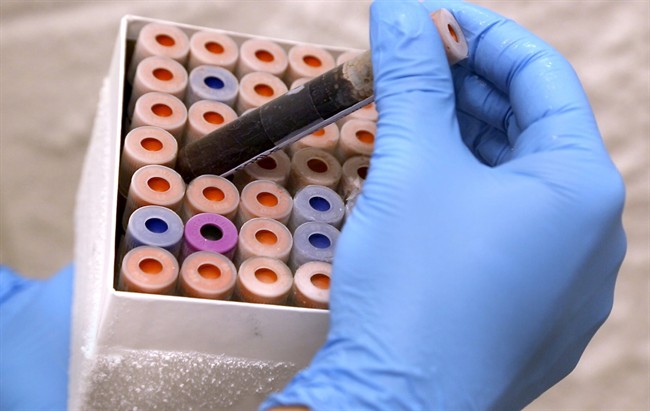With a single drop of blood, Boston scientists say their new test can figure out every virus that’s infected you. The new technology could pave the way to quickly helping doctors uncover a profile of your medical history to deciphering if certain viruses could make patients vulnerable to disease later on in life.

Researchers out of Brigham and Women’s Hospital and Harvard Medical School say their blood test, called VirScan, can detect more than 1,000 different strains of viruses that have either made you sick in the past or are tampering with your immunity now.
“Using this method, we can take a tiny drop of blood and determine what viruses a person has been infected with over the course of many years,” Dr. Stephen Elledge, a Harvard Medical School professor who helped lead the study, said.
“What makes this so unique is the scale – right now, a physician needs to guess what virus might be at play and individually test for it. With VirScan, we can look for virtually all viruses, even rare ones, with a single test,” he said.
READ MORE: Could this simple blood test help predict how long you’ll live?
Right now, the blood tests on hand pick up one pathogen at a time. Even then, they haven’t been developed to test for all viruses.
Elledge and his team tested VirScan on almost 600 people from Peru, the United States, South Africa and Thailand. They created a library of peptides – fragments of viruses – that would help them pick up on the viral strains in a patient’s blood.
- Capital gains changes are ‘really fair,’ Freeland says, as doctors cry foul
- Ontario doctors offer solutions to help address shortage of family physicians
- ‘Dangerous message’: Experts slam anti-sunscreen claims circulating online
- ‘Trying not to die’: Tourism operators loaded with debt despite rising demand
The test scans the body’s immune response to these viruses so if antibodies to these ailments exist, patients likely fought the bug in the past. Researchers have uncovered 206 different viruses that infect people, but each species comes with their own set of strains.
READ MORE: 5 Canadian innovations that could change the face of global health care
On average, the test detected about 10 viruses in each patient (usually the flu or a stomach bug), but a handful had antibodies that protected against more than 60 bugs. Rates of exposure depended on age, location and HIV status, but across the board, most people’s immune systems had a small number of peptides.
The researchers say the test could cost as little as $25 but it comes with huge implications: if doctors know of a previous exposure to a virus, they could be hints to potential diseases later on in their patients’ lives. A link between Epstein-Barr virus – one of the most common viruses seen in the study, for example – and a risk of certain cancers is already known.
READ MORE: Is the treadmill test a good measure of your risk of death?
HPV – or the human papilloma virus, as another example – could be the precursor to cervical cancer.
The team hopes that their testing could reveal other unknown connections between viruses and chronic disease.
“A viral infection can leave behind an indelible footprint on the immune system. Having a simple, reproducible method like VirScan may help us generate new hypotheses and understand the interplay between the virome and the host’s immune system, with implications for a variety of diseases,” Elledge said.
His full findings were published in the journal Science. Read the full findings here.
carmen.chai@globalnews.ca
Follow @Carmen_Chai




Comments